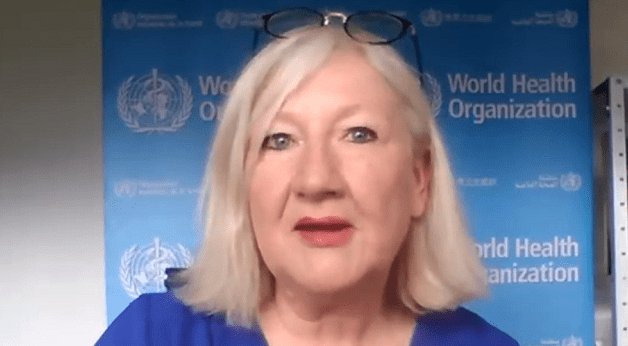Original title: vigilance! South Africa has found a new variant strain, which may escape the attack of the immune system. A who spokesman responded
Edited by: Li Zedong
According to CCTV News reported on September 1st, local time spokesman Margaret Harris said in August 31st, who has contacted South African researchers to monitor and assess the first COVID-19 C.1.2 variant strain. The strain did not accelerate transmission and was not listed as a "mutant strain to be concerned" by who.
It is reported that the previous National Institute of infectious diseases in South Africa has said that it is closely monitoring the new variant of the new crown virus, named "C.1.2", which contains multiple mutations, and researchers suspect that it may evade the attack of some immune systems.

Who spokesman Margaret Harris photo source: CCTV news
According to South African media reports on August 31 local time, the National Institute of infectious diseases of South Africa said that at present, delta mutant strain is the main source of most infection cases in South Africa, and c.1.2 mutant strain is not a threat for the time being. During the third wave of COVID-19 in South Africa in May this year, the C.1.2 variant strain was first discovered in South Africa. South African researchers are closely monitoring the development of the latest variant.
The C.1.2 incidence rate is very low, only 2% to 3%, the Institute said. However, this number is increasing month by month, so they are sequencing the virus gene and paying close attention to the relevant situation. At present, there is not much more detailed data on this mutant strain.

Source: Photo Network
According to the science and Technology Daily on August 31, according to the researchers' report, the c.1.2 variant was first found in pumalanga and Gauteng provinces in South Africa in May this year, when the third wave of epidemic in South Africa was about to begin. After June, it appeared in KwaZulu Natal and Limpopo provinces in South Africa. By August, c.1.2 had also been found in the Eastern Cape, the Western Cape and the Northern Cape. The variant has also been spread in Botswana, the Democratic Republic of Congo, Mauritius, New Zealand, Portugal, Switzerland and other countries.
Catherine shepherds, one of the lead authors of the study, said that the current figures probably underestimated the spread and frequency of the variation in South Africa and around the world. She said that the new variant "may have occurred in the long term after infection with COVID-19 and accumulated additional mutations, which may lead to immune evasion."
Sheppers also pointed out that it is not known whether the mutation combination in c.1.2 makes the lineage more infectious, and there is no data on the immune avoidance ability of the variant, but she believes that some of these mutations may affect immune escape.
Pillay, deputy director general of the Ministry of health of South Africa, said that the prevalence of new variants in the tested samples was "very low at this stage". In May, c.1.2 accounted for 0.2% of all sequenced genomes; In June, this figure rose to 1.6%; By July, it was 2%. However, it should be noted that the monthly increase in the number of c.1.2 genomes sequenced in South Africa is similar to that observed earlier in beta and delta variants.
At present, COVID-19's Alfa, beta, gamma and delta variants are 4 kinds of worrying varieties, and ETA, Etta, CAPA and Lamuda variants are the variants that need attention. Researchers believe that although c.1.2 variant is not a worrying variant at present, c.1.2 should be classified as a variant requiring attention.
The daily economic news is reported by CCTV news and science and technology daily
Daily economic news
主营业务:website,cms,wap website


 扫一扫,关注我们最新消息
扫一扫,关注我们最新消息 